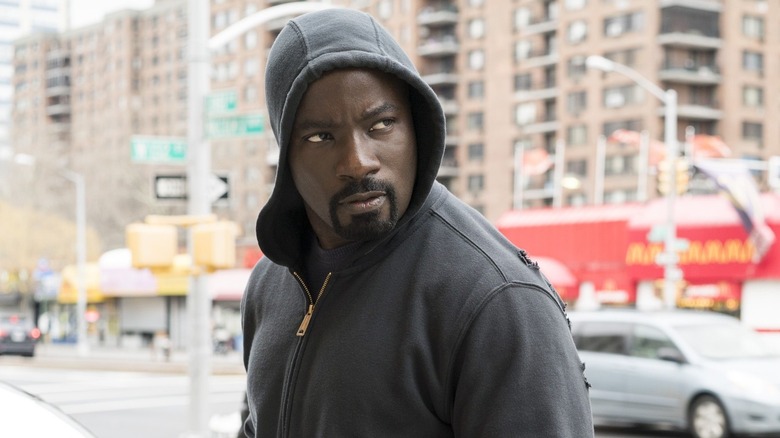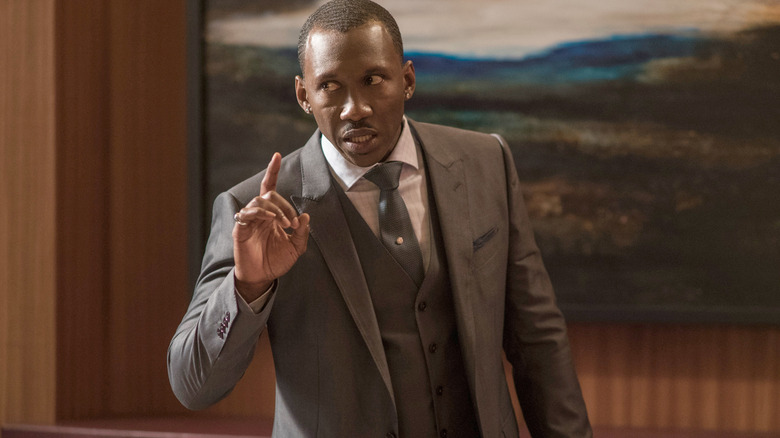Luke Cage's Showrunner Addressed The Black Villains Controversy
Marvel has done wonders for Black representation over the years. From "Black Panther" to "Blade" to "Luke Cage," the comic books and their screen adaptations have allowed for new kinds of heroes to rise. However, some fans of the latter series, a Netflix original starring Mike Colter, have been making criticisms of the show that the cast and crew behind it may not be expecting.
"Obviously, Luke Cage was created in the 1970s, but did y'all peek how the Marvel series depicted him having to fight MORE Black people to SAVE Harlem than white villains?" wondered X (formerly known as Twitter) user @silentpartner80. "I did." Of course, this question suggests that despite all the good that the character and the series have done, perhaps there was a mistake in how some of these stories were framed.
When addressing the criticism, however, Cheo Hodari Coker, the former showrunner of "Luke Cage," had a pretty pragmatic answer. "I was trying to keep Black people gainfully employed," he explained in response to the user's observations. "LOL. Just saying ..."
Cheo Hodari Coker wasn't having it with this critique
Though the original user's point was popular enough to be liked and retweeted hundreds of times, that didn't stop fellow "Luke Cage" fans from coming to Cheo Hodari Coker's defense. "If he was only fighting white people, they would complain that there are too many white folks in Harlem," suggested @zhion25.
For his part, the "Luke Cage" showrunner pointed out that the series actually received complaints going in the other direction when it was first released on Netflix. "A white person didn't have a speaking part for 13 minutes and major dialogue until minute 29," Coker tweeted. "People actually complained. Scarfe's scene in the club got cut, so it wasn't even intentional."
Here, the former showrunner is referring to one of the series' recurring characters, Rafael "Rafe" Scarfe (Frank Whaley), a detective with a complex history who appears in seven episodes of "Luke Cage." Still, @VTBuckeyes hit Coker with another critique in the thread. "My only problem was how stiff they had Luke fighting," he tweeted. "When one of his main skills was hand-to-hand combat."
Once again, the "Luke Cage" showrunner was snappy with his response, pointing out that it could have been a lot worse. "With our budget at the time, you're lucky Luke got to fight at all," he tweeted in response.

